Stormwater System Cleaning: Flood Prevention Comprehensive Guide
Stormwater system cleaning: Discover key practices for effective maintenance, flood prevention, and environmental protection.
Stormwater system cleaning is essential for maintaining proper drainage and preventing flooding. This process involves removing debris, sediments, and pollutants from stormwater systems to ensure they function efficiently.
Table of Contents
Key Takeaway
- Regular maintenance of stormwater systems prevents clogs and flooding.
- Efficient cleaning involves removing debris, sediments, and pollutants.
- Proper equipment and trained personnel are crucial for effective cleaning.
- Maintenance schedules should be tailored to the system’s size and location.
- Environmental protection is a key benefit of stormwater system cleaning.
The Importance of Stormwater System Cleaning
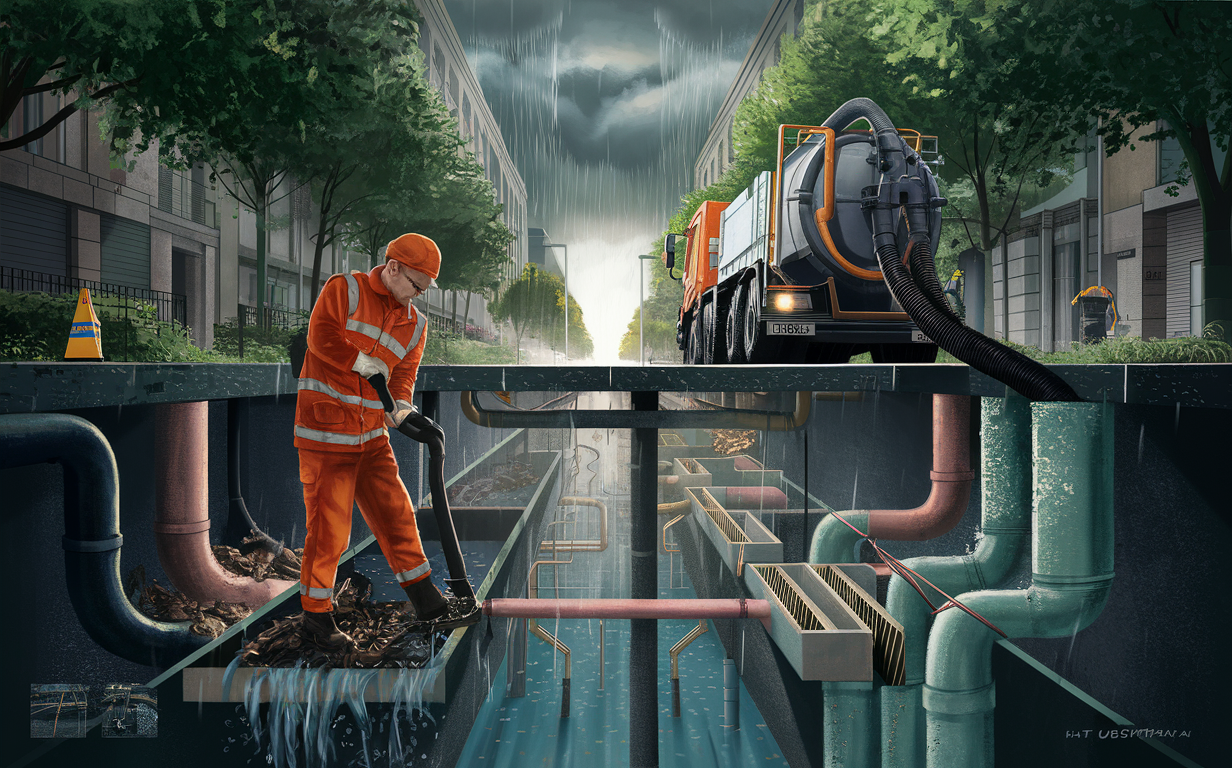
Effective stormwater system cleaning is integral to urban and suburban communities. Regular maintenance ensures that systems like drains, pipes, and basins can manage water flow during heavy rains, preventing flooding and property damage.
Preventing Flooding and Property Damage
Flooding can cause substantial damage to homes, businesses, and public infrastructure. By keeping stormwater systems clear of obstructions, you reduce the risk of overflow and backups.
Maintaining Water Quality
Stormwater systems often channel water directly into natural water bodies. Cleaning these systems helps to remove pollutants, such as oils, chemicals, and waste, improving water quality and protecting aquatic ecosystems.
Enhancing System Longevity
Regular cleaning and maintenance extend the lifespan of stormwater systems by preventing the buildup of corrosive materials and ensuring that all components function correctly.
Effective Stormwater System Cleaning Practices
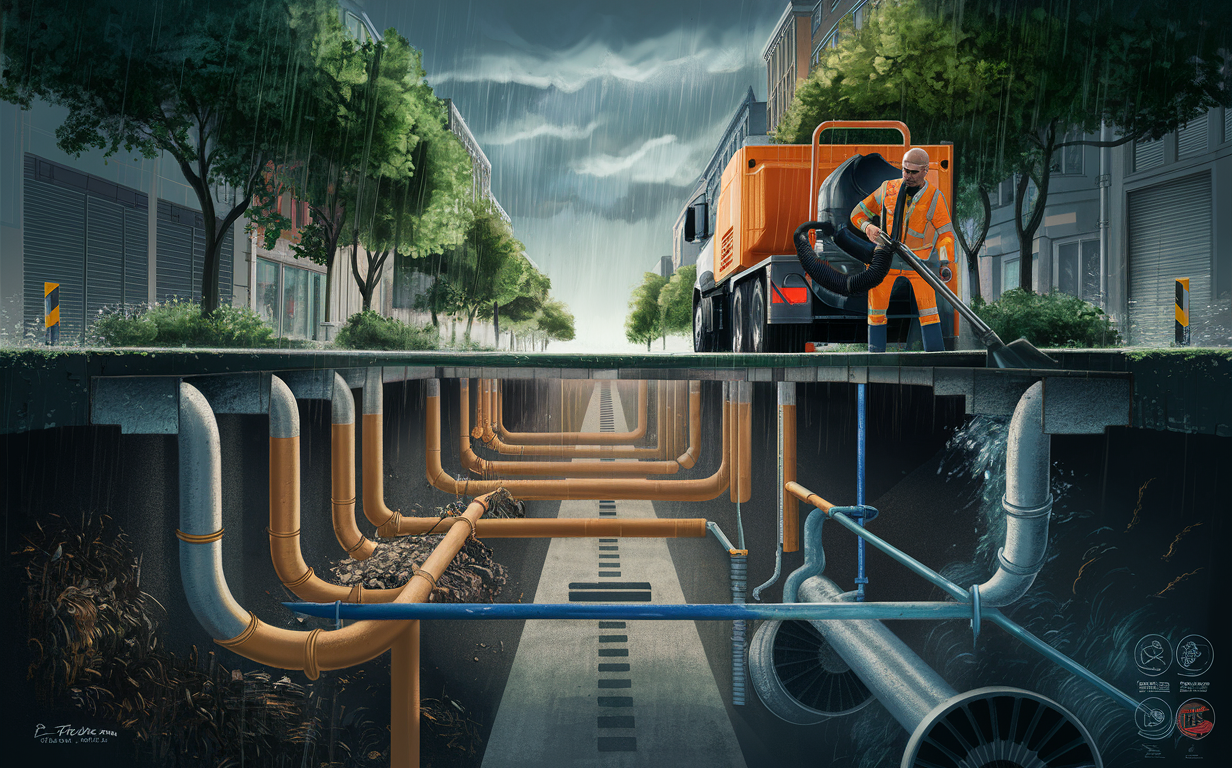
Regular Inspections
Conducting regular inspections is the first step in effective stormwater system maintenance. Inspections help identify potential issues before they become major problems.
Using Proper Equipment
Effective cleaning requires the right tools. Vacuum trucks and high-pressure water jetting are commonly used to remove debris and sediment from stormwater systems.
Common Equipment Used in Stormwater System Cleaning
| Equipment Type | Description | Uses |
|---|---|---|
| Vacuum Trucks | Trucks equipped with powerful vacuums | Removing debris and sediment |
| High-Pressure Jets | Equipment that uses high-pressure water to clean pipes | Clearing blockages and cleaning surfaces |
| CCTV Inspection | Camera systems for inspecting inside pipes | Identifying clogs and structural issues |
Scheduling Maintenance
Develop a maintenance schedule based on the size and location of the stormwater system. Areas with heavy rainfall or prone to debris accumulation may require more frequent cleaning.
Implementing Environmental Best Practices
When cleaning stormwater systems, it’s important to follow environmental best practices. This includes proper disposal of collected waste and using eco-friendly cleaning agents.
Benefits of Professional Stormwater System Cleaning
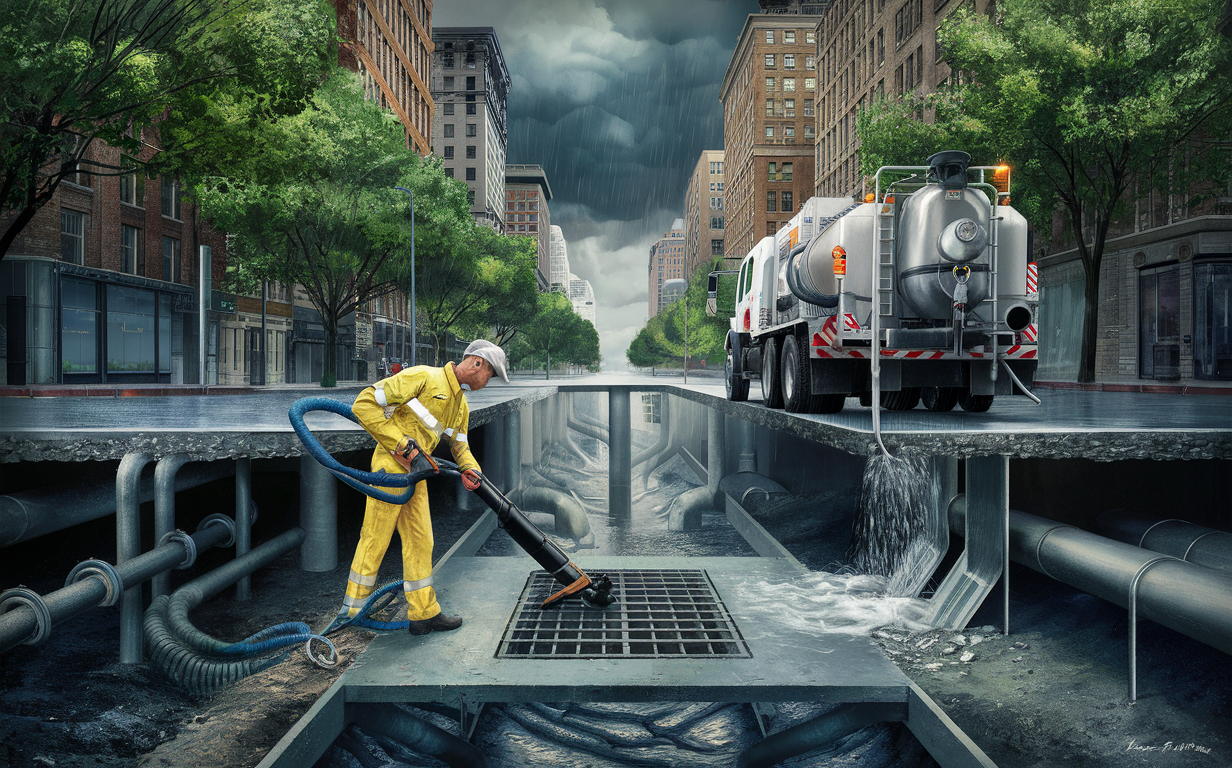
Expertise and Experience
Professionals have the expertise and experience to handle complex stormwater systems. They can identify potential issues and address them before they cause significant problems.
Efficiency and Reliability
Using professional services ensures that the job is done efficiently and reliably. Professionals have the right equipment and training to clean stormwater systems effectively.
Peace of Mind
Knowing that your stormwater systems are well-maintained provides peace of mind. You can be confident that your property is protected from flooding and water damage.
Best Practices for Property Owners
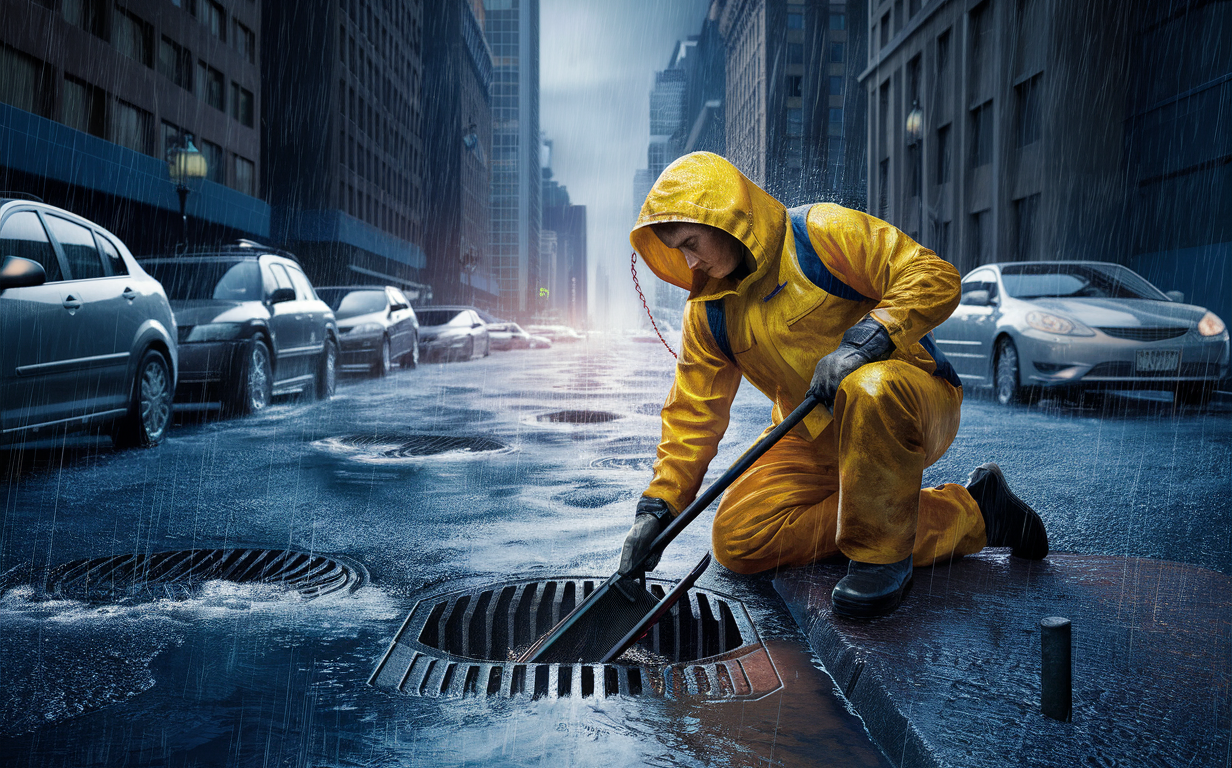
Regular Maintenance
Property owners should develop a maintenance schedule for their stormwater systems. Regular cleaning prevents clogs and ensures the system operates efficiently.
Proper Disposal of Waste
When cleaning stormwater systems, it’s important to properly dispose of the waste. This includes debris, sediment, and any pollutants collected during the cleaning process.
Working with Professionals
While some maintenance tasks can be done by property owners, it’s often best to work with professionals for thorough cleaning and inspections. Professionals have the tools and expertise to handle the job effectively.
Maintenance Schedule Recommendations
| System Type | Recommended Frequency | Key Maintenance Activities |
|---|---|---|
| Residential Systems | Twice a year | Debris removal, sediment cleaning |
| Commercial Systems | Quarterly | Comprehensive cleaning, inspections |
| High-Debris Areas | Monthly | Frequent debris removal |
| Large Public Systems | Biannual | Full system cleaning and inspection |
Common Misconceptions About Stormwater System Cleaning

It’s Only Necessary During Heavy Rainfall
Many believe that stormwater system cleaning is only necessary during heavy rainfall. However, regular maintenance is essential to prevent issues from arising, regardless of the weather.
DIY Cleaning is Sufficient
While property owners can perform some basic maintenance tasks, professional cleaning is often necessary for thorough and effective maintenance.
It’s a One-Time Job
Stormwater system cleaning is an ongoing task. Regular maintenance ensures the system remains functional and prevents long-term issues.
Key Benefits of Regular Stormwater System Cleaning
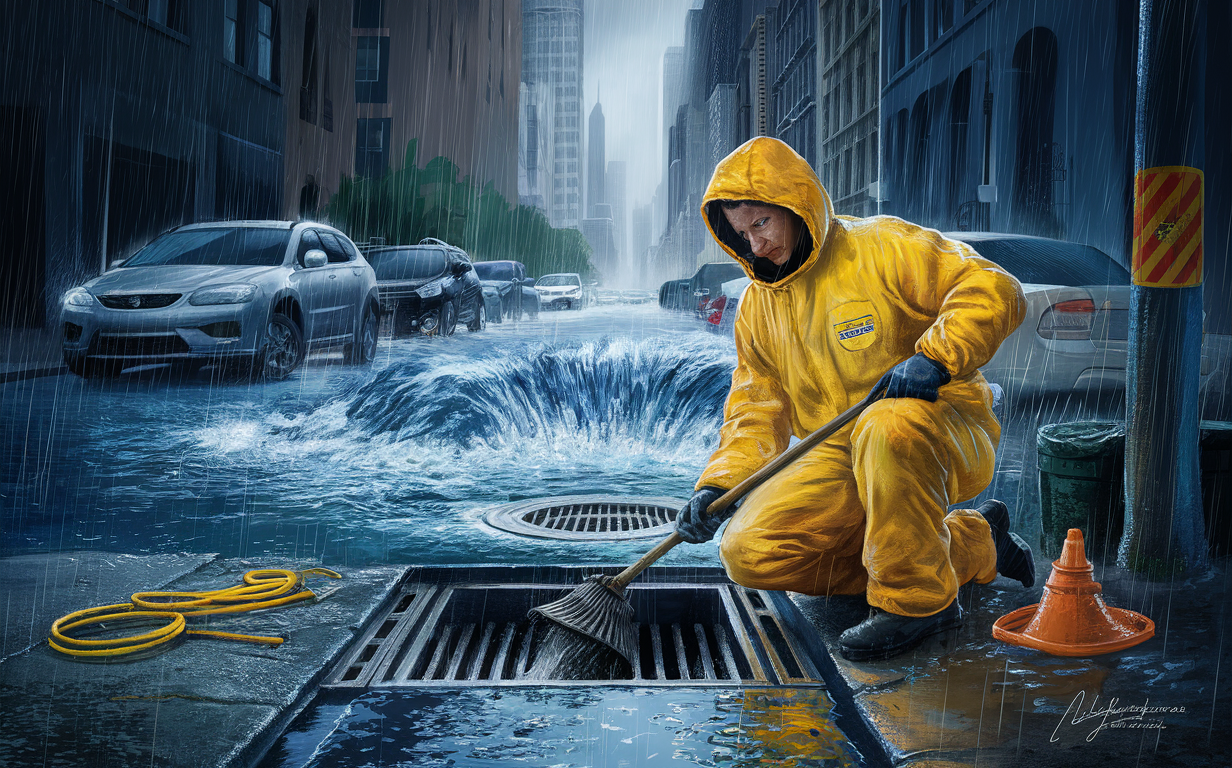
Preventing Health Hazards
Standing water and clogged drains can become breeding grounds for mosquitoes and other pests. Regular cleaning helps prevent these health hazards.
Protecting Property Value
Well-maintained stormwater systems protect property from water damage, preserving its value.
Enhancing Community Safety
Properly functioning stormwater systems reduce the risk of flooding, protecting roads, homes, and businesses and ensuring community safety.
Facts About Stormwater System Cleaning
- Importance: Stormwater systems are essential for managing and collecting rainwater runoff, preventing flooding, and protecting water quality. Regular cleaning is necessary to maintain their efficiency and effectiveness.
- Cleaning Methods: Stormwater systems can be cleaned using various methods, including manual cleaning, pressure washing, and vacuuming. The choice of method depends on the size and complexity of the system.
- Frequency: The frequency of cleaning depends on the location, size, and usage of the stormwater system. In urban areas with high pollution levels, more frequent cleaning may be required.
- Benefits: Regular cleaning of stormwater systems offers several benefits, including improved water quality, reduced flooding risk, and extended system lifespan.
- Safety Precautions: Stormwater system cleaning can be hazardous, and safety precautions must be taken. Workers should wear protective clothing, including gloves and safety goggles, and follow safe work practices.
- Professional Services: Professional stormwater system cleaning services can ensure thorough and safe cleaning, using specialized equipment and techniques.
Conclusion
Stormwater system cleaning is a critical aspect of property maintenance. Regular cleaning ensures that stormwater systems function efficiently, preventing flooding, protecting water quality, and extending the system’s lifespan. Working with professional services like Texway Wastewater Services guarantees that your stormwater systems are well-maintained and reliable. Schedule your maintenance today to protect your property and ensure community safety.
By focusing on practical insights and real-life experiences, this provides a unique perspective on stormwater system cleaning.

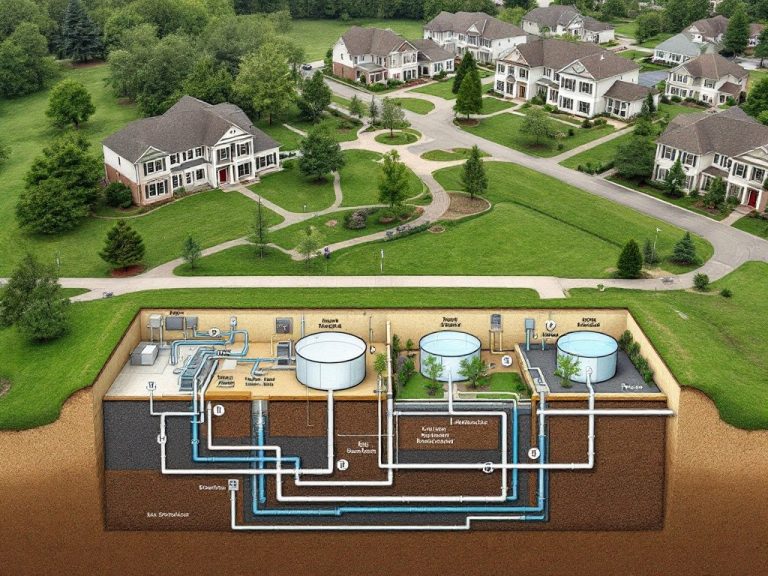

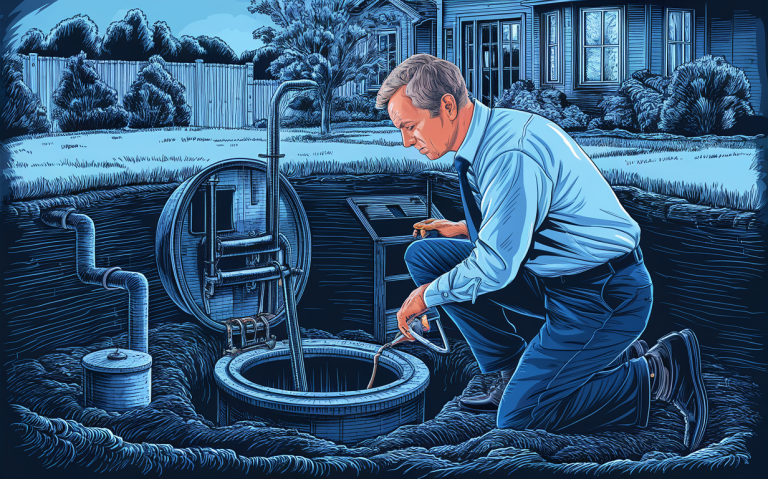
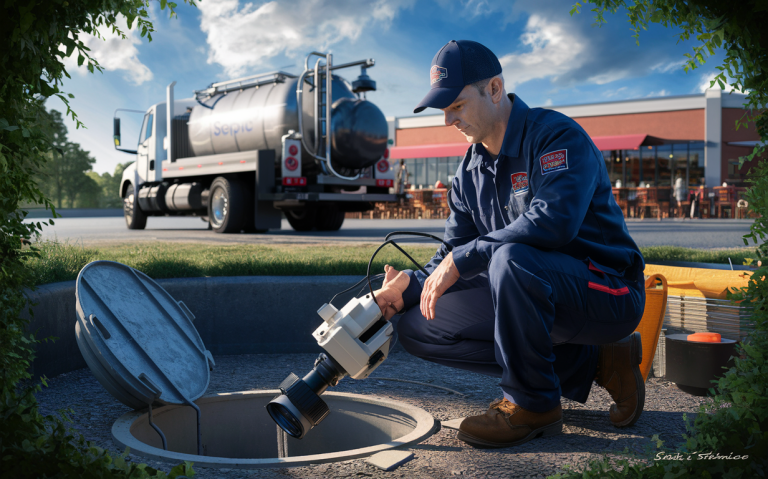
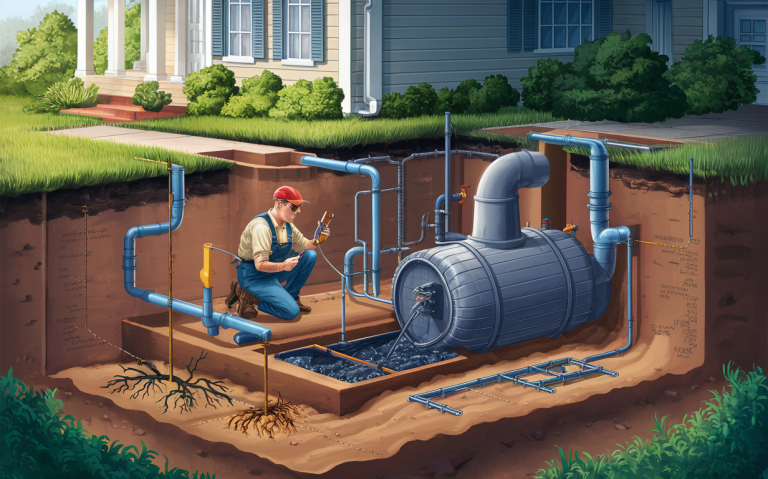
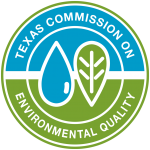 Texway Wastewater Services is a septic, wastewater, and excavation company based out of Burleson, Texas and serving the surrounding areas. We specialize in
Texway Wastewater Services is a septic, wastewater, and excavation company based out of Burleson, Texas and serving the surrounding areas. We specialize in